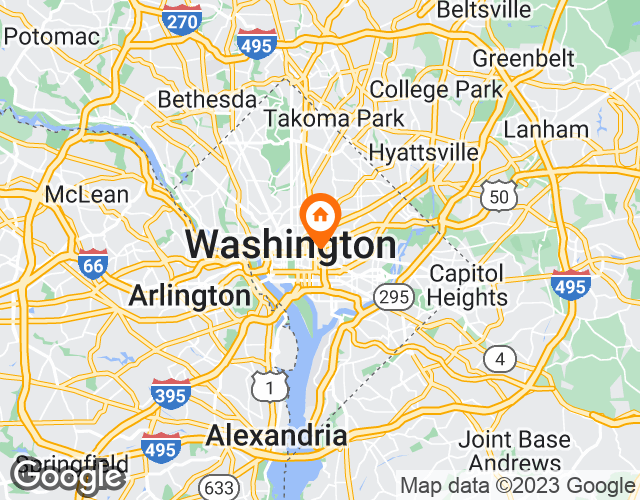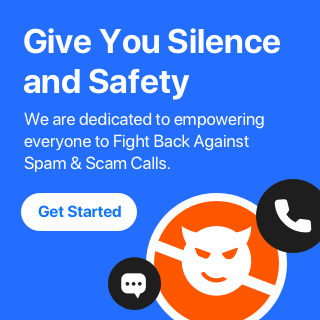(202) 471-1208
is a Political Robocall
This number also appears as 202-471-1208, 2024711208, (202) 471-1208
- Risk Level:very-high
- Carrier:Level 3
- Location:Washington, District of Columbia

- Line Type:Landline
- Recording:
- Transpript:

About Washington
Washington-Connecticut is a small town located in Litchfield County, Connecticut. It is located in the northwest region of the state and is surrounded by beautiful mountains and forests. The area code for Washington-Connecticut is 860 and the zip code is 06793. Despite being a small town, Washington-Connecticut has been a victim of numerous fraudulent calls in recent years. The most common types of fraudulent calls are those offering fake financial services or attempting to trick people into revealing personal information. To protect against these calls, Realcall can be used, an application that automatically intercepts suspicious calls and provides information about their origin.
Top 20 Spam Calls

Just last week, people got RealCall protection!





Every spam call has been blocked since I’ve installed this app. I get 10-15 robocalls daily and never get distractions while I’m working or with family. Very happy with it.
00brunette





No annoying calls!! Though it also silences all calls not in contacts. I’d like to get all calls from my local phone numbers.
pennybeanpole





I own my own aesthetics business, as well as I teach yoga. It is important for me to be able to stay in touch with my clients as well as my healthcare providers as I am chronically ill but this also leads to me having incessant phone calls that I waste time on. Bec I was literally losing my mind, and, starting to waste a lot of stress on said calls that didn\'t need to go through. If you are receiving too many Robo calls or too many spam calls. This is worth your money, especially if you own your own business.
Nacomanrandysavage





Finally sanity! Thanks! No spam calls!
WENDEE WOO





Well, so far, this is blocked all of the Robo calls and scam calls so I would definitely have to say that I am happy with this app.
josh121984
Comment
1 user reports for (202) 471-1208
Fake fundraising scam asking for donations that they keep for themselves. This is a fake charity fundraising scam! 99% of these unsolicited phone calls from fake charity fundraisers that pretend to raise money for veterans, police, firefighters, breast cancer, leukemia and other cancers, autism, colleges and schools, the NRA, political organizations, and other seemingly worthy causes are ALL SCAMS!! If you want to donate to these causes, do your own research, research the Charity Navigator website, and you will find reputable charities that actually donate most of the collected money to the actual cause that they represent. All these other fake fundraising scams rotate through various charity causes every day and keep all of the collected money for themselves, some of these fake fundraisers purposely overcharge your credit card thousands of dollars and then disappear, and they all really ruin the trust that people have for the reputable charities. Anyone can phone you from anywhere in the world and tell you that they are raising money for some worthy cause, but charity fundraising fraud phone scams are extremely common, very easy to do, and your contributed money goes directly to the fraudsters instead. Many of these fake fundraising scammers use automated interactive voice response (IVR) software that sounds very human, but you are initially talking to a software-based robot who asks you some questions and responds based on your replies before transferring you to the real scammer who steals your credit card number under the pretense of raising money for a variety of fake causes that these scammers rotate through every day. The human scammer often says they will mail you an envelope so you can mail your donation in, but then they immediately still ask for your credit card number. The robot caller usually begins the call with either a pleasant female voice or a stern male voice asking, "Hi, this is (fake_name), how are you doing today?", "Hi, is the head of the household there?", or "Hi, is (your first name) there?" Scammers often use IVR robo-dialing to automatically match the name that the robot asks for on the phone call to the name that is associated with millions of phone numbers and addresses on phone marketing databases that anyone can purchase. Many of the thousands of India and Philippines phone scammers also use these same phone databases and they often ask for you by name to sound like a personal phone call to gain your trust. If you reply "No, John is not here" or "No, you have the wrong number", the IVR robot is programmed to say "Maybe you can help me" and still ask you for a scam donation. All of these IVR robot-based fundraising scams have been robo-dialing using the same IVR software voices and scripted dialogues for years now, only varying the charity/cause that they falsely support from week to week. During the holiday months of November and December, these scammers usually change their IVR recordings to say they are fundraising for cancer research, autism, veterans, etc. During other times, they pretend to raise money for police, the NRA, political organizations, schools, etc. More than 90% of all North America scam phone calls originate from crowded phone rooms in India and the Philippines that run numerous fraud, extortion, and money laundering scams every day. Some fake charity donation scams are also run by American scammers. Like all the other Indian and Filipino scammers, these fake donation scams spoof thousands of fake Caller ID names and numbers so you can never call them back on the fake number that shows up on Caller ID. Nowadays, NEVER trust any unsolicited caller who supposedly represents a charity, a pharmacy, a Medicare or car/health/life insurance offer, a computer support person saying your computer has a virus, a fake robotic recording of a Social Security or IRS officer saying your Social Security has been suspended or you have unpaid back taxes, a fake debt collector threatening you for fake debts, a fake recording from Amazon/Microsoft/Apple/Verizon/AT&T/bank, anyone who phones you with any kind of sales offer (more than 90% of unsolicited sales calls are scams so your odds of saving money are very poor), any kind of legal or arrest threats, any claims of suspicious activity on an account, any claims of refunds or auto-renewed/auto-debited accounts, and any pre-recorded messages. Any unsolicited caller with a foreign accent (nearly always Indian or Filipino) should immediately be treated as a scam until carefully proven otherwise. Scammers usually use VoIP phone numbers or spoof fake Caller ID numbers that they frequently change every day. Legitimate businesses never use hundreds of area codes and tens of thousands of fake Caller ID phone numbers where you cannot call them back. They are all FAKE and they all try to steal your credit card or Social Security numbers, or they ask for your bank and personal identity information. Anyone, including you, can use telecom software or a third-party service to phone using fake names and phone numbers that show up on Caller ID. It is really very simple and easy to avoid phone and email scams - if you assume all unsolicited calls are malicious in intent, you will never be scammed and have thousands of dollars or your identity stolen from you. Sometimes I love to play with these scammers by pretending to be a gullible target and stringing them along on the phone call for 30 or 60 minutes so I can at least waste their time and prevent them from scamming someone else while I cook and eat and toy with them.
Similar Number
Media News

Amazon Scams Become the Top Source of Consumer Fraud Losses, RealCall Report Reveals

Spam Blocking Service Provider RealCall Warns of Midterm Election Scams

Spam-blocking App RealCall: How to Deal with Growing Robocall Scams

Don’t be a chop: avoid pig butchering scams

Spam blocking app RealCall warns of “pig butchering” scams

RealCall Spam Call Blocker App for iOS Review








